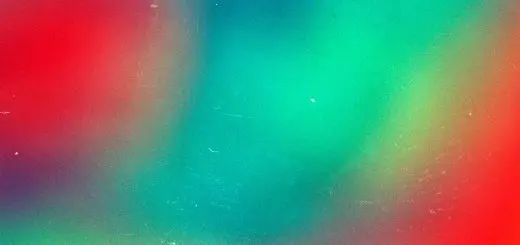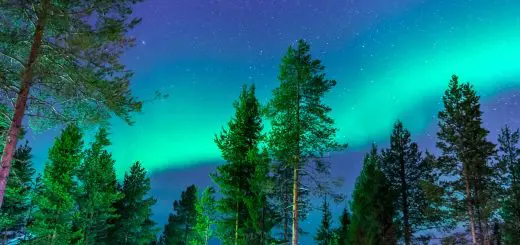The Poetic Edda: Essential Texts of Germanic Mythology

Looking for more amazing products? Check out our online store and explore our collection here! Happy shopping!
Before diving in, please note: This post is for informational purposes only. If you’d like to know more about how we approach topics, feel free to check out our friendly Disclaimer Page.
Hey there, amazing readers! 
We’re committed to delivering quality posts, and your support (even just sticking around despite the ads) means everything to us. So, bear with us, and thanks for helping us keep the good vibes rolling. Now, on to the fun stuff!
TRANSLATE BUTTON AT THE END OF THE ARTICLE
A Quick Overview
The Poetic Edda is a collection of Old Norse poems that form the most substantial source of Norse mythology and Germanic heroic legends.
Composed in the 13th century, these texts provide valuable insights into the beliefs, values, and cultural practices of the ancient Germanic peoples.
The poems encompass a wide range of topics, including the creation of the world, the exploits of legendary heroes, and the battles between gods and giants.
The Poetic Edda continues to fascinate scholars and readers alike with its rich tapestry of myths and symbols.
Introduction to The Poetic Edda
The Poetic Edda, also known as the Elder Edda, is a collection of poems that were compiled in Iceland in the 13th century.
The texts are anonymous and were likely passed down orally before being transcribed by various scribes.
The poems cover a wide range of subjects, from creation myths to heroic legends, and provide a unique glimpse into the worldview of the ancient Norse and Germanic peoples.
Origins and History of Germanic Mythology
Germanic mythology dates back to the pre-Christian era when tribes in Northern Europe worshipped a pantheon of gods and goddesses.
The stories and beliefs of these early Germanic peoples were passed down through oral tradition and later recorded in written form.
Germanic mythology includes a diverse array of characters, such as Odin, Thor, and Loki, as well as epic tales of heroism and cosmic battles.
These myths reflect the values and concerns of the ancient Germanic societies.
Compilation of The Poetic Edda
The Poetic Edda is believed to have been compiled by an unknown author in Iceland in the 13th century.
The collection consists of two main sections: the Codex Regius, which contains mythological poems, and the Prose Edda, which provides commentary and explanations of the poems.
The poems in the Poetic Edda were likely passed down orally for generations before being written down, preserving the rich tapestry of Norse mythology for future generations.
Themes and Symbols in The Poetic Edda
The Poetic Edda explores a wide range of themes, including the power of fate, the importance of honor and loyalty, and the cyclical nature of life and death.
The poems are filled with rich symbolism, such as the World Tree Yggdrasil, which connects the nine realms of Norse cosmology, and the concept of Ragnarok, the apocalyptic battle that will bring about the end of the world.
These themes and symbols serve to deepen the meaning and significance of the myths contained in the Poetic Edda.
Structure and Content of The Poetic Edda
The Poetic Edda is divided into several sections, each containing a different set of poems.
The poems vary in style and tone, ranging from epic narratives to lyrical verses.
The collection includes stories of creation, tales of heroism and adventure, and myths of gods and giants.
The poems are written in Old Norse verse and often feature complex metaphors and allusions.
The diverse range of content in the Poetic Edda reflects the multifaceted nature of Norse mythology.
Key Figures in Germanic Mythology
Germanic mythology features a diverse cast of characters, including gods, goddesses, heroes, and monsters.
Some of the key figures in Norse mythology include Odin, the Allfather and ruler of the gods; Thor, the god of thunder and protector of mankind; Loki, the trickster god and harbinger of chaos; and Freyja, the goddess of love and fertility.
These figures play pivotal roles in the myths and legends preserved in the Poetic Edda.
Influence of The Poetic Edda on Literature
The Poetic Edda has had a profound influence on literature and art throughout history.
Writers, poets, and artists have drawn inspiration from the myths and legends contained in these texts, creating works that reflect the themes and imagery of Norse mythology.
The Poetic Edda has informed the fantasy genre, with authors such as J.R.R.
Tolkien and Neil Gaiman drawing on its rich tapestry of stories for their own creations.
The enduring popularity of Norse mythology in popular culture attests to the lasting impact of the Poetic Edda.
Interpretations and Analysis of The Poetic Edda
Scholars have long studied and analyzed the Poetic Edda to uncover the deeper meanings and messages hidden within its verses.
The poems are filled with layers of symbolism and allegory, inviting multiple interpretations and perspectives.
Scholars have debated the origins of the myths, the motivations of the characters, and the moral lessons embedded in the stories.
The Poetic Edda continues to be a fertile ground for academic inquiry and exploration.
Translation and Versions of The Poetic Edda
The Poetic Edda has been translated into numerous languages and adapted in various forms over the centuries.
Different versions of the text exist, each offering unique insights and interpretations of the original poems.
Translators have grappled with the challenges of capturing the nuances of Old Norse poetry and preserving the cadence and rhythm of the original verses.
These translations have made the myths and legends of the Poetic Edda accessible to a wider audience and facilitated the continued study and appreciation of Norse mythology.
Importance of The Poetic Edda in Norse Culture
The Poetic Edda holds a central place in Norse culture and identity, serving as a repository of the myths and legends that shaped the worldview of the ancient Germanic peoples.
The poems in the Edda were likely performed at feasts, rituals, and gatherings, providing entertainment and spiritual nourishment for the community.
The myths and symbols of the Poetic Edda continue to resonate with modern audiences, reflecting enduring themes of heroism, sacrifice, and the eternal struggle between order and chaos.
Comparisons to Other Mythological Texts
The Poetic Edda shares similarities with other mythological texts, such as the Prose Edda, the Icelandic sagas, and the Volsung Saga.
These texts collectively form a rich tapestry of Norse mythology and heroic legends, providing multiple perspectives on the same characters and events.
While the Poetic Edda focuses more on poetic and mythological elements, the Prose Edda offers a more scholarly and structured approach to Norse mythology.
Together, these texts offer a comprehensive and multifaceted view of the world of the ancient Norse and Germanic peoples.
Legacy of The Poetic Edda in Modern Times
The legacy of the Poetic Edda continues to endure in modern times, with its myths and symbols resonating in literature, art, and popular culture.
The themes of courage, destiny, and the eternal struggle between good and evil remain relevant and compelling to contemporary audiences.
The Poetic Edda has inspired countless works of fiction, poetry, and music, ensuring that the stories of Norse mythology will continue to captivate and inspire future generations.
The enduring popularity and significance of the Poetic Edda attest to the timeless power and resonance of these ancient myths.
Conclusion
The Poetic Edda stands as a testament to the rich heritage of Norse mythology and Germanic culture.
Its poems offer a window into the beliefs, values, and worldview of the ancient Germanic peoples, while also inspiring generations of readers, scholars, and artists with its timeless tales of gods, heroes, and monsters.
The enduring appeal of the Poetic Edda lies in its universal themes, intricate symbolism, and vivid storytelling, which continue to captivate and resonate with audiences around the world.
As a foundational text of Germanic mythology, the Poetic Edda remains an essential source for understanding the complex and dynamic world of Norse cosmology and heroic legends.

The Enlightenment Journey is a remarkable collection of writings authored by a distinguished group of experts in the fields of spirituality, new age, and esoteric knowledge.
This anthology features a diverse assembly of well-experienced authors who bring their profound insights and credible perspectives to the forefront.
Each contributor possesses a wealth of knowledge and wisdom, making them authorities in their respective domains.
Together, they offer readers a transformative journey into the realms of spiritual growth, self-discovery, and esoteric enlightenment.
The Enlightenment Journey is a testament to the collective expertise of these luminaries, providing readers with a rich tapestry of ideas and information to illuminate their spiritual path.
Our Diverse Expertise
While our primary focus is on spirituality and esotericism, we are equally passionate about exploring a wide range of other topics and niches 

To ensure we provide the most accurate and valuable insights, we collaborate with trusted experts in their respective domains 
Our blog originally focused on spirituality and metaphysics, but we’ve since expanded to cover a wide range of niches. Don’t worry—we continue to publish a lot of articles on spirituality! Frequently visit our blog to explore our diverse content and stay tuned for more insightful reads.
Hey there, amazing reader! 
Check out our store here and take a peek at some of our featured products below! Thanks for being awesome!













